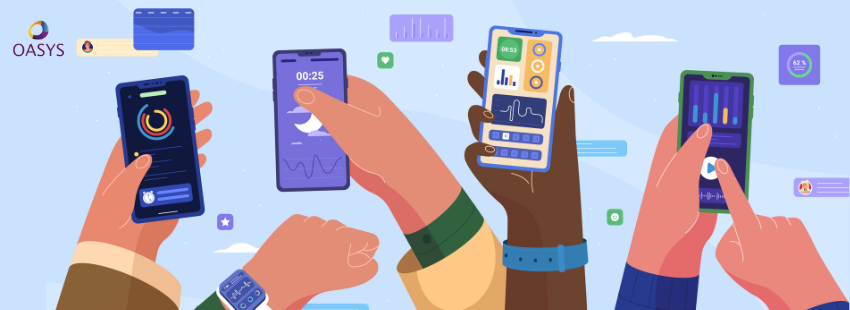Introduction
Mobile app development is an ever-evolving field, with new technologies and trends continually reshaping the way apps are designed and built. Staying up-to-date with these emerging trends is crucial for developers and businesses alike to create successful, cutting-edge mobile applications. In this blog post, we'll explore some of the most prominent emerging trends in mobile app development that are shaping the industry in 2023 and beyond.
1. Cross-Platform Development
Traditionally, mobile app developers have faced the challenge of creating separate apps for iOS and Android platforms. However, cross-platform development tools and frameworks, such as React Native, Flutter, and Xamarin, have gained immense popularity. These frameworks allow developers to write code once and deploy it across multiple platforms, reducing development time and costs.
2. 5G Integration
The rollout of 5G networks is set to revolutionize mobile app development. With faster internet speeds and lower latency, 5G opens up new possibilities for real-time applications, augmented reality (AR), virtual reality (VR), and IoT-based apps. Developers need to leverage 5G's capabilities to create richer and more interactive experiences for users.The rollout of 5G networks is set to revolutionize mobile app development. With faster internet speeds and lower latency, 5G opens up new possibilities for real-time applications, augmented reality (AR), virtual reality (VR), and IoT-based apps. Developers need to leverage 5G's capabilities to create richer and more interactive experiences for users.
3. Progressive Web Apps (PWAs)
PWAs combine the best of web and mobile app technologies. They are web applications that provide a native app-like experience when accessed through a web browser. PWAs are gaining traction because they are easy to develop and maintain, work offline, and are highly responsive. They offer a seamless user experience across different devices and platforms.
4. Artificial Intelligence and Machine Learning
AI and ML are increasingly being integrated into mobile apps to enhance user experiences. Chatbots, recommendation engines, and voice assistants are just a few examples of AI-powered features in apps. Additionally, machine learning models are used for predictive analytics and personalization, making apps smarter and more user-centric.
5. Blockchain Integration
Blockchain technology is not limited to cryptocurrencies; it has significant potential in mobile app development as well. Blockchain can enhance app security, enable secure transactions, and provide transparency in various industries like finance, healthcare, and supply chain. Integrating blockchain into mobile apps is a trend worth exploring.
6. Voice User Interfaces (VUIs)
Voice recognition technology has improved significantly, and VUIs are becoming more prevalent in mobile apps. Users can interact with apps using voice commands, making it easier to perform tasks hands-free. Integrating VUIs can be beneficial for accessibility and user convenience.
7. Edge Computing
Edge computing brings data processing closer to the source of data generation, reducing latency and improving app performance. This is particularly important for applications that require real-time data analysis and response, such as IoT devices and AR/VR applications.
8. Enhanced App Security
As cyber threats continue to evolve, app security remains a top priority. Developers are adopting advanced security measures such as biometric authentication, data encryption, and continuous security testing to protect user data and privacy.
9. Augmented Reality (AR) and Virtual Reality (VR)
AR and VR technologies are gaining momentum in various industries, including gaming, healthcare, education, and marketing. Mobile apps are at the forefront of this trend, offering immersive experiences through ARKit (iOS) and ARCore (Android) for augmented reality, as well as VR headsets for virtual reality.
10. Internet of Things (IoT) Integration
IoT devices are becoming increasingly interconnected, and mobile apps serve as a gateway to control and monitor these devices. Mobile app developers are focusing on IoT integration to enable users to manage their smart homes, wearables, and industrial IoT devices conveniently.
Conclusion
The mobile app development landscape is constantly evolving, driven by technological advancements and changing user expectations. Staying updated with emerging trends is essential for developers and businesses to remain competitive and deliver innovative, user-friendly mobile applications. Whether it's leveraging cross-platform development tools, harnessing the power of AI, or embracing emerging technologies like 5G and blockchain, staying at the forefront of mobile app development trends can lead to the creation of compelling and successful mobile apps.


